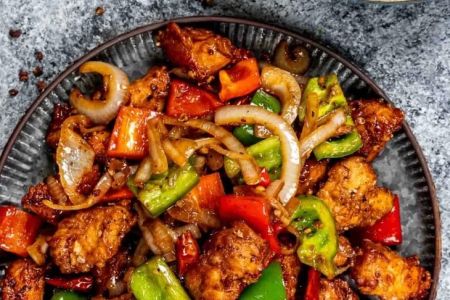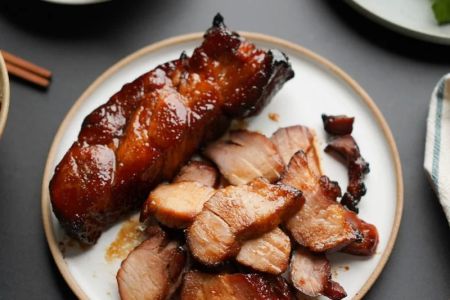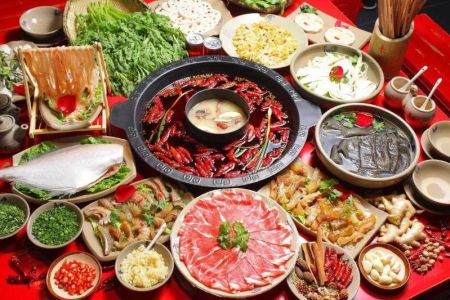The Evolution of Chinese Food in the U.S.
When I first visited a Chinese restaurant in the U.S., I was immediately struck by the fusion of traditional Chinese flavors and American ingredients. Over the years, I’ve witnessed firsthand how Chinese food has transformed in the U.S., adapting to local tastes while still keeping its cultural roots. In recent years, a new wave of trends has emerged in the Chinese restaurant scene across the country, driven by both evolving customer preferences and an influx of younger generations interested in exploring diverse cuisines.
How Chinese Food Became an American Staple
Chinese food wasn’t always as popular in the U.S. as it is today. In fact, the first wave of Chinese immigrants in the 19th century opened small, family-run eateries primarily serving other Chinese immigrants. Over time, these restaurants adapted their menus to cater to the tastes of the American public, creating dishes like chop suey and sweet and sour chicken, which were more palatable to American palates. Fast forward to the present, and Chinese food is now a major part of American culinary culture.
What’s Trending in Chinese Restaurants Today?
As someone who regularly dines at Chinese restaurants, I’ve noticed some significant shifts in the types of dishes being served. From healthier alternatives to bold new flavor combinations, here’s a look at some of the hottest trends in Chinese restaurants across the U.S.
1. Health-Conscious Options
In the past, Chinese food in the U.S. was often associated with heavy, greasy dishes. But in recent years, there has been a major shift toward healthier alternatives. Restaurants are now offering more options that focus on fresh vegetables, lean proteins, and lighter cooking methods. For example, many places now feature steamed dishes, vegetable-based stir-fries, and tofu-centered meals. I’ve noticed that dishes like kung pao chicken have been lightened up with less oil, and crispy options like egg rolls have been replaced with healthier steamed buns or dumplings.
2. Regional Chinese Cuisine
While many American Chinese restaurants stick to a general menu of favorites, there’s been a rise in regional Chinese cuisines being represented. Restaurants are beginning to feature more diverse regional dishes from China’s many culinary traditions. For example, Sichuan cuisine, known for its bold, spicy flavors and use of chili peppers and Sichuan peppercorns, has been gaining popularity. I recently visited a restaurant specializing in Sichuan hot pot, and the experience was unlike anything I’d had before — fiery, flavorful, and packed with authentic ingredients. Other regional cuisines, like Cantonese, Shanghainese, and Northern Chinese food, are also finding their way onto menus.
3. Fusion Dishes
Fusion cuisine has been a major trend in the U.S. for a while now, and Chinese food has certainly jumped on the bandwagon. One of my favorite discoveries has been the rise of Chinese-American fusion dishes. These combinations marry traditional Chinese cooking with American ingredients and flavors. For instance, I’ve seen bao buns filled with pulled pork or crab cakes served with a soy-based dipping sauce. Other fusion favorites include Chinese tacos and General Tso’s chicken sliders. These innovative dishes offer a fun and unique take on classic Chinese food, appealing to a younger, adventurous crowd.
4. Plant-Based and Vegan Chinese Food
The demand for plant-based and vegan options has been on the rise, and Chinese restaurants have certainly taken note. Many of the classic Chinese dishes are already naturally vegetarian or can be easily adapted for vegans. For example, sweet and sour tofu, vegetable dumplings, and vegan fried rice have become staples at many Chinese restaurants. The inclusion of plant-based proteins like tofu, tempeh, and seitan allows diners to enjoy their favorite dishes without any animal products. I’ve noticed that even traditional dishes like mapo tofu have been given vegan makeovers without compromising on flavor.
5. Dim Sum is Making a Comeback
Dim sum, the small plates traditionally served during brunch, is making a major comeback in Chinese restaurants across the U.S. I recently visited a restaurant in San Francisco that offered an expansive dim sum menu, and it was incredible. From dumplings filled with shrimp and pork to sweet buns filled with custard, there’s something for everyone. Dim sum has become increasingly popular not just for its delicious taste but also for the social experience it provides. Many Chinese restaurants now offer dim sum all day, making it more accessible to people who aren’t able to visit for brunch hours.
The Impact of Technology on Chinese Restaurants
Technology has also played a significant role in the evolving landscape of Chinese food in the U.S. Many restaurants have embraced online ordering and delivery services, making it easier than ever to enjoy Chinese food from the comfort of your home. In addition, some restaurants are using apps to allow customers to track their orders and make payments. This shift towards convenience has only helped to further solidify Chinese food’s place in American dining culture, particularly as the fast-paced lifestyle of modern America demands more convenience in every meal.
Conclusion: The Future of Chinese Food in America
As someone who’s watched the evolution of Chinese food in the U.S., I’m excited to see where these trends will lead. The variety of flavors, healthier options, and innovative dishes are a testament to the adaptability of Chinese cuisine. As more people explore regional Chinese flavors and fusion dishes, I believe that Chinese restaurants in the U.S. will continue to thrive and evolve, offering something for everyone. Whether you’re craving a spicy Sichuan hot pot or a light, plant-based stir-fry, Chinese food is ready to meet the demands of a diverse, dynamic food culture.






![Top Chinese Restaurants for Authentic Cantonese Cuisine in [Your City]](https://img.gochinarose.com/d33/2507/4157910400_450x300.webp)
